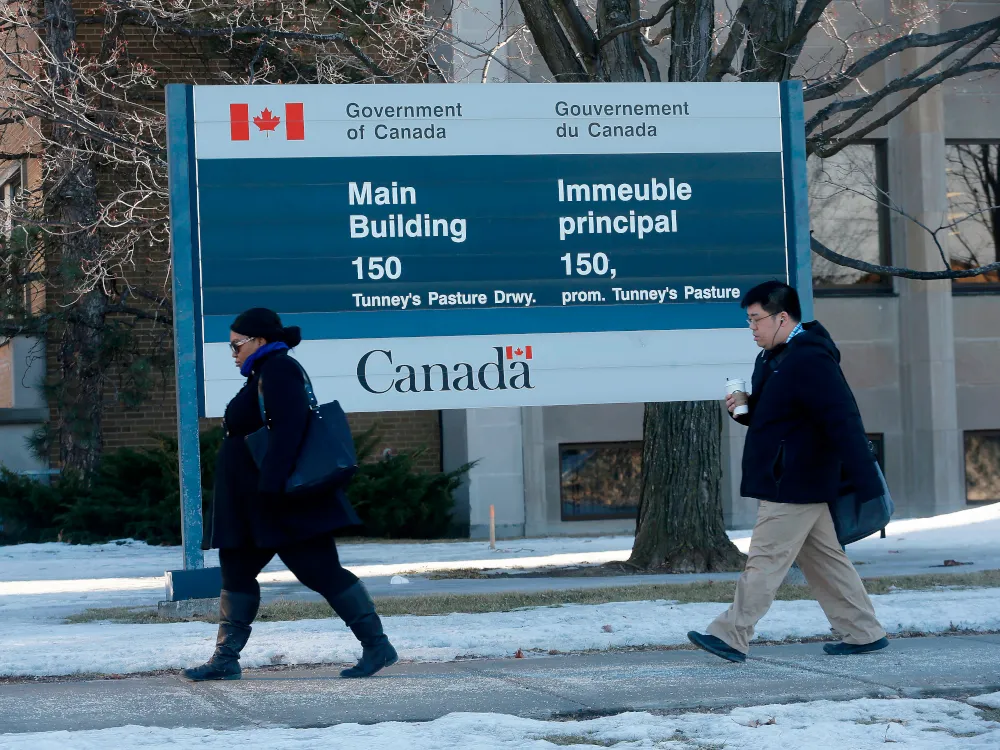Who is the largest employer in Canada? You might think it would be one of the big banks or maybe a company like Bell or Loblaw. But you’d be wrong. It’s the federal government.
Governments at all levels and their multitude of agencies, Crown corporations and departments employ a large chunk of Canada’s labour market. According to the Fraser Institute, as of July 2022, Canada’s public sector represented 21.8 per cent of all jobs in the economy — and growing.
That means that nearly one out of every four Canadians works for the government — a staggering percentage, which is nearly double that of the United States and almost the same as communist Venezuela.
The federal government alone has more than 200 separate agencies — everything from Polar Knowledge Canada and the Canada School of Public Service, an agency that “supports public servants through key career transitions,” to the Canadian Cultural Property Export Review Board and the Canadian Judicial Council, a body that “provides judges with a continuing education program and ethical principles.” It’s amazing that Canadians ever survived without all these agencies.
If all this weren’t bad enough, earlier this month, the Office of the Parliamentary Budget Officer (PBO) released a report showing that spending on federal government employees has grown tremendously over the past few years — increasing by a whopping 31 per cent per cent, from $46.3 billion in 2019-20 to $60.7 billion in 2021-22. The PBO report called the increase a “record” expansion of the size of the public service.
But that’s not all. Not only did we add more government workers to our top-heavy bureaucracy, we also paid them more. According to the PBO, overall compensation for civil servants — salaries, pensions, overtime and bonuses — also rose significantly. The average bureaucrat in Ottawa now takes home over $125,000 per year in salary and benefits — up from around $117,500 before the pandemic.
Between 2015 and 2021, we’ve added more than 50,000 civil servants in Ottawa. Last year, the PBO estimated that the number of federal bureaucrats would increase from 335,000 to 410,000 within five years.
At the end of the day, we have a government that continues to grow in size and scope, devouring a larger and larger portion of the national revenue. We need to stop the growth of the bureaucracy and gradually reduce the size of government.
It’s not the fault of civil servants that bureaucracies have gotten so badly bloated and that government keeps growing. All of us, to a certain extent, are to blame because we as a society have repeatedly turned to government to solve all of our social and economic problems and fulfill all of our needs. Politicians have created endless new government departments and agencies, while citizens have sat back and allowed governments to grow unchecked for decades.
But at the same time, most Canadians likely realize that there’s a lot of government fat that can be cut. There’s also a lot of waste, mismanagement and duplication that can be stopped by turning off the taps of taxpayer funding.
We have far too much government bureaucracy and overhead, and we’re paying for that overhead through very high rates of taxation. That makes us increasingly uncompetitive on a global scale, at a time when economies like ours are fighting to keep jobs and attract investment.
We should immediately institute a program of targeted cuts in government spending. The reduction could be done in an orderly way, without taking a chainsaw to government programs — and without jeopardizing safety, the environment, education or health — by simply reducing government spending by five per cent per year over a 10-year period.
The reduction in government overhead and spending should occur at all three levels of government: federal, provincial and municipal. Government employees affected by streamlining government services should receive fair compensation and assistance in transitioning to another career.
If we enacted these gradual and targeted spending cuts, the result would be dramatic: after 10 years, we would decrease the amount of money spent on government overhead by 50 per cent, and we’d be able to lower taxes and redirect some of those savings to critical areas like health care that need more funding. Most importantly, our economy would become much more competitive.
If we don’t, our future prosperity and living standards will be sucked dry by a government whose thirst for spending knows no bounds.

